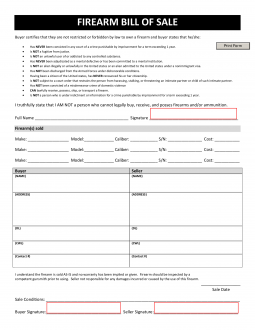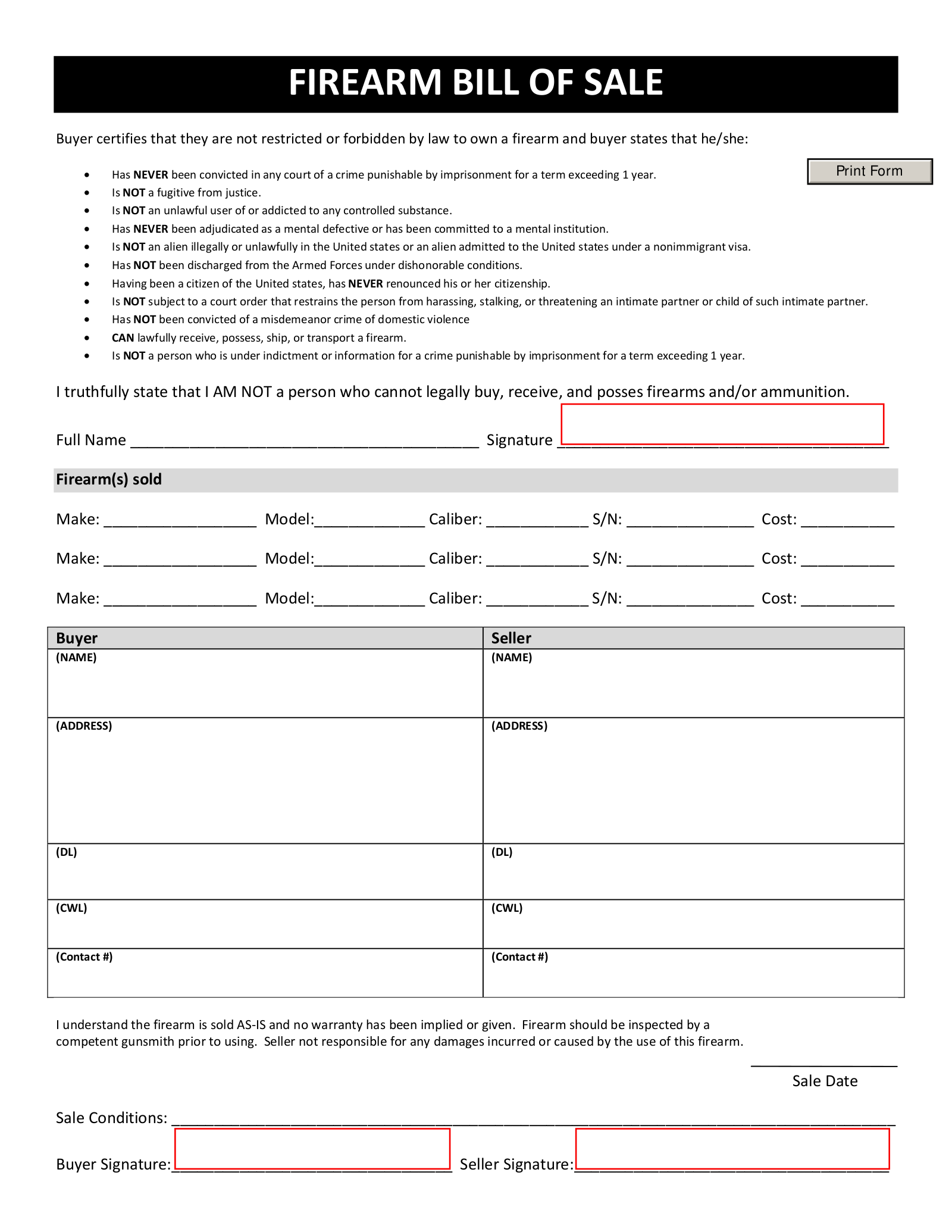Updated September 14, 2023
A Texas firearm bill of sale is a form that proves the legal sale and purchase of a firearm in the State of Texas. All aspects of the form should be carefully considered and properly documented. This form does not require notarization unless otherwise agreed between the parties or required by the state. It contains identifying information about the buyer, the seller, and the firearm.
Table of Contents |
Privately Selling a Firearm
Texas doesn’t have laws that require any private person or public entity to obtain a state-issued license to sell firearms in the state.
Prohibited from Buying
In Texas, federal law is more stringent than state law regarding firearm purchases. An individual is prohibited from buying a weapon if they are a person:[1]
- convicted in any court of a crime punishable by imprisonment for a term exceeding one year;
- who is a fugitive from justice;
- who is an unlawful user of or addicted to any controlled substance (as defined in section 102 of the Controlled Substances Act);[2]
- who has been adjudicated as a mental defective or has been committed to any mental institution;
- who is an illegal alien;
- who has been discharged from the Armed Forces under dishonorable conditions;
- who has renounced his or her United States citizenship;
- who is subject to a court order restraining the person from harassing, stalking, or threatening an intimate partner or child of the intimate partner; or
- who has been convicted of a misdemeanor crime of domestic violence.
Registering a Firearm
Texas has no laws requiring the state registration of firearms.
Concealed Carry
Texans who are 21 or older, and not strictly prohibited by law (e.g., felons, fugitives from justice, or those defined above), may carry a concealed or holstered firearm without a license to carry (“LTC”) in non-prohibited places.[3] Eligible individuals can still obtain an LTC in order to reap its benefits, such as having the license recognized in other states (reciprocity). When seeking an LTC, follow the steps below.
How to Apply
Applicants must be at least 21 years of age (unless active duty military) and must meet Federal qualifications to purchase a handgun.[4]
Step 1 – Apply online through the Texas Department of Public Safety – Regulatory Services Division. All necessary documentation should be attached to the application form.
Step 2 – Pay application fees to the Department of Public Safety. The standard fee for an original LTC is $40. Fees are non-refundable and non-transferrable. If an application is not approved, the fees will not be refunded.[5]
Step 3 – Schedule an appointment for fingerprinting.
Step 4 – Complete four to six hours of classroom training, pass a written examination, and pass a proficiency demonstration (mainly assessed by shooting).[6]
Reciprocity
Texas has negotiated reciprocity agreements with all U.S. states except for the following: Maine, Minnesota, New Hampshire, Oregon, Vermont, Wisconsin, and Wyoming.[7]


